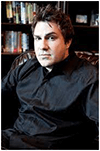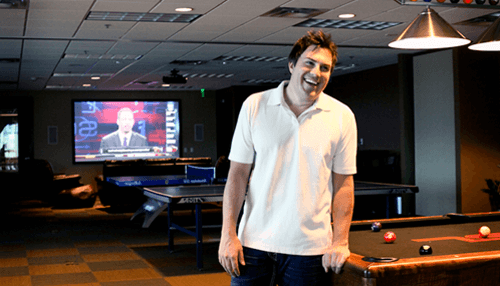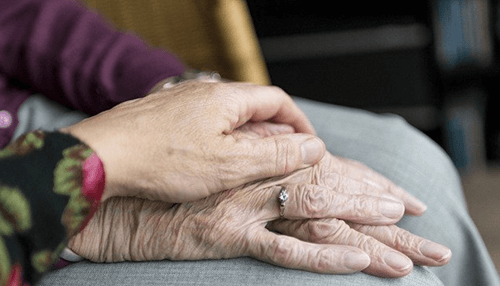Since the 1800s, researchers have watched our average life expectancy continually improve. A tech investor Jason Hope, suggests that the anti-aging revolution is closer than we might believe. Research performed by the Special Operations Command on genetic engineering has many people paying close attention.
Let’s take a closer look at how anti-aging treatments are unfolding before our very eyes.
Jason Hope on Anti-Aging Pills
Special Operations Command is poised to move into the clinical trial phase of its anti-aging pill. The pill is said to inhibit and reduce some of the more degenerative effects of aging. Research done on this SOCOM project has been incorporated into a larger effort by the Pentagon to address human performance.
Lisa Sanders is the Director of Science and Technology for Special Operations Forces. Sanders discussed how the new pill has the potential to delay aging while stopping the onset of certain injuries. Navy Commander Tim Hawkins stated of the anti-aging pill, “We have completed pre-clinical safety and dosing studies in anticipation of follow-on performance testing.”
As a futurist, Hope understands how big the anti-aging industry could become in the following years. With that kind of attraction, money is sure to follow. Navy Commander Hawkins would reveal that SOCOM had already spent more than $2.8 million on its efforts producing the anti-aging pharmaceutical.
Meet the Team at MetrioBiotech
As an angel investor himself, Hope has seen first-hand how savvy entrepreneurs are turning to technology to make life-changing products. For the SOCOM project, life-changing is simply the name of the game. SOCOM used biotechnology from the team at MetroBiotech to make this revelation.
MetroBioTech has confirmed its development of a number of proprietary precursor compounds including NAD+, a compound vital to the function of living cells. Biotech research has revealed that lower levels of NAD+ can be correlated with aging and age-related disease, including inflammation, mitochondrial dysfunction, and other common age-related illnesses.
MetroBiotech states on its website, “Levels decline as humans age and remain depleted during disease states.” The website went on to explain that preclinical evidence suggests that boosting NAD+ levels can help to offset age-related functional decline.
Tech Reluctance
Vaccine hesitancy during COVID-19 revealed how frustrating misinformation can get. This is doubly true for complicated fields like genetic engineering. One member of the SOCOM team pointed out that their team had decided to stay away from “long-term genetic engineering” as it made people “very uncomfortable.”
According to Jason Hope, this tech hesitancy will fall away as innovative medical advancements continue to make themselves known. The work done at SOCOM has led to remarkable progress due in large part to its access to OTAs and Middle Tier Acquisition authorities.
SOCOM has been able to join in partnerships with specific labs, institutes, and commercial research facilities to attempt to benefit the troops.
Addressing Dementia With Jason Hope
Researchers have already identified a potential new treatment option to halt the development of neurodegenerative symptoms. These effects have been tracked in mouse models while researching both dementia and Alzheimer’s Disease. Research thus far has taken place at Tohoku University with the International Journal of Molecular Sciences. The study was published on July 8th.
Kohji Fukunaga is the head author of the paper referenced above. Fukunaga said in a statement, “There are currently no disease-modifying therapeutics for neurodegenerative disorders.” Through the team’s efforts, they would discover a “novel disease-modifying” candidate in SAK3.
For the same reason that Hope supports the SENS Foundation, he believes in the work Tohoku University is doing. Kohji said, “In our studies [SAK3] rescued neurons in most protein-misfolding, neurodegenerative diseases.”
As a futurist, Hope believes that innovative medical advancements are the key that unlocks the door of anti-aging. The work performed by Fukunaga and his team on mice, providing daily doses of SAK3, could very much lay the groundwork for similar steps taken on human patients in the future.
SAK3 presents a tremendously exciting opportunity for both Hope and Fukunaga. SAK3 would become the first compound solely targeting the “regulatory activity in neurodegenerative disorders.”
Jason Hope on Finding Purpose
As a futurist and tech entrepreneur, Jason Hope is always going to angle his attentions toward tech innovation. That being said, there are certain steps that can be taken today to offset age-related disease and illness while fostering a healthier, longer-lived life.
For Hope, living longer means living with purpose and that might be the key to a longer life. One study revealed that people living with a sense of purpose would lead to reduced mortality rates in their 50s and 60s.
While Hope has many suggestions and concepts for a more purpose-driven life, a few stand out immediately.
- Connect With New People
- Discover What You Love to Do
- Focus On ONE Thing at A Time
- Dream For Your Ideal Life
Purpose comes in every size and scale imaginable. For Hope, purpose means fighting and advocating for anti-aging research into human longevity. What is your purpose?
Learn More About Jason Hope

Hope would earn his degree in Finance from ASU before acquiring his Undergraduate Degree and Master’s in Business Administration from W.P. Carey School of Business.



